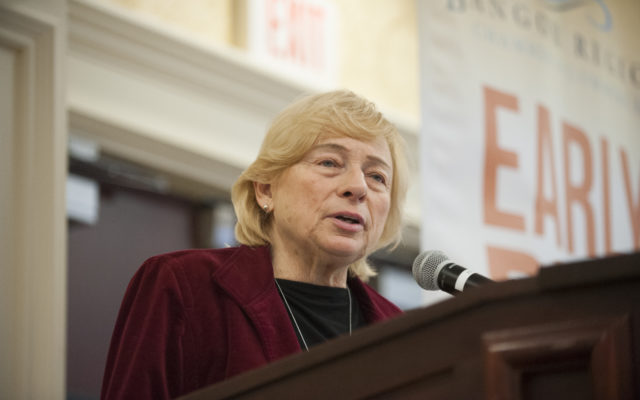
Mills teases gradual reopening of Maine’s economy, but life ‘will not return to normal soon’
Click here for the latest coronavirus news, which the BDN has made free for the public. You can support our critical reporting on the coronavirus by purchasing a digital subscription or donating directly to the newsroom.
Maine will take a gradual approach to lifting restrictions aimed at slowing the spread of the coronavirus, but things “will not return to normal soon,” Gov. Janet Mills said Thursday.
The Democratic governor released a four-point list of principles that will guide the state in a restart: protecting public health, maintaining health care readiness, building reliable and accessible testing and prioritizing public-private collaboration.
[Our COVID-19 tracker contains the most recent information on Maine cases by county]
“We have to face the hard truth that the coronavirus continues to be a threat,” she said. “We all want life to return to normal as soon as it is safe to do so. Our hearts break to see closed storefronts and people struggling to make ends meet because of this crisis.”
Mills said she doesn’t want to reopen too soon and risk a resurgence in the virus. She said the Maine CDC is developing criteria for lifting restrictions that will be issued in the next several days. Maine is working with governors, including those in New Hampshire and Vermont, on regional coordination in lifting restrictions to minimize interstate travel that could jeopardize public health.
The governor made her comments in a briefing alongside Heather Johnson, commissioner of Maine’s Department of Economic and Community Development, and Nirav Shah, director of the Maine Center for Disease Control and Prevention.
Dana Connors, president of the Maine State Chamber of Commerce, said the four principles were a good start and that the governor’s comments “opened the door to the reentry into the economy in terms of giving us insight into how and when that would occur.”
“It’s clear that she has called upon the private sector to be a part of it,” he said. “The more information that is shared will give businesses hope on what is required for them to make the case to reopen.”
Chris Gardner, chairman of the Washington County Commissioners, wrote Mills a letter this week saying that rural areas of Maine with fewer recorded cases could lead the way in reopening. He said on Thursday he would like the governor to keep a fifth principle in mind: a regional approach is best.
He said it is “not in anybody’s best interest to keep the state or the country in this shutdown mode for much longer.”
“
I’m hopeful we can find some kind of balance in recognizing that at some point in time herd immunity becomes important and at some point in time there’s going to be an assumption of risk that we’re going to have to accept as a society to get ourselves back functioning again,” Gardner said.
The Department of Economic and Community Development will ask representatives of industries and sectors of Maine’s economy for ideas on how they can develop protocols to let them safely resume operations once public health requirements are met. Those protocols will be made public when they are completed.
Mills last Friday said her administration was devising a plan to gradually reopen Maine’s economy until it is safe to do so. President Donald Trump last Thursday unveiled his “guidelines for opening up America again,” which included a three-phase plan to gradually allow businesses to reopen based on certain public health benchmarks.
The governor in mid-April extended the civil state of emergency in Maine until May 15. Her stay-at-home order will remain in effect until April 30. She said there is no plan yet to renew it or let it expire, but that reviewing it is “a day by day thing.”
The Maine CDC reported 30 more positive novel coronavirus cases and five more deaths since Wednesday. Today’s figures bring the total confirmed coronavirus cases in Maine to 937 and the death total to 44.
The pace of reopening has created sharp disagreements between some businesses and states that want their economies to reopen and stem job and other losses and health officials worried that a flood of people in close proximity could start a second wave of coronavirus cases. Mills’ measures were protested by hundreds in Augusta on Monday, though 74 percent of Mainers approved of the state’s virus response in a survey released earlier this month.
The White House guidelines say that states should have 14 days of sustained decline in coronavirus infections before lifting restrictions on commercial activity. In an interview on ABC’s “Good Morning America” on Monday, Dr. Anthony Fauci, director of the National Institute of Allergy and Infectious Diseases, warned that reopening too quickly could backfire.
“Unless we get the virus under control, the real economic recovery isn’t going to happen,” Fauci said. “So what you do if you jump the gun and go into a situation where you have a big spike, you’re going to set yourself back.”